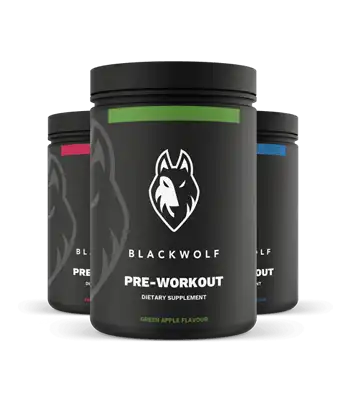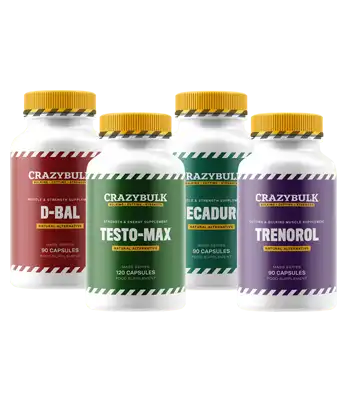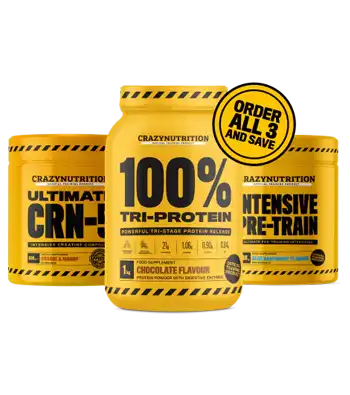Introduction
Protein is the key nutrient in our bodies, that forms the building blocks of the muscles, cells, and tissues. While fats and carbohydrates act as the major source of energy during workouts, protein is known to support physical activities. Apart from metabolic and cognitive functions that it performs in our body, it is known to create the ideal counterbalance of overall wellness and exercise performance. The protein assists the athletes in their performance especially when they perform strength training exercises that help them with muscle-building. The inclusion of protein-rich foods like lean meats, eggs, yogurt, milk, cottage cheese, and legumes in your diet can give your workout performance a valuable boost. Furthermore, for athletes and fitness enthusiasts aiming to enhance their nutrition, protein supplements can be a key player in the improvement of overall wellness.
How Protein Helps Improve Performance
Protein is an essential nutrient for athletes as it helps them build and repair muscles, boosting endurance, and enhancing strength. It is important for athletes to pay close attention to the protein requirements in order to attain performance and recovery goals effectively. Now, let’s see how protein helps athletes fulfill the requirements:
- Muscle Building and Repair: Protein consists of the amino acids to fix and rebuild the muscles. Not only do they get patched up, but they also become tougher and stronger. The growth of the muscles is extremely important for athletes because the stronger muscles help them to last longer in sports. A study conducted by Yun-A Shin et al published in the Journal of Sports Science and Medicine concluded that that resistance training is an effective way to improve muscle strength in athletes.
- Endurance: Protein is a reliable source of energy for athletes during their never-ending workouts. It also acts as a muscle protector, that prevents the body from utilizing the muscles for energy. A research study conducted by Shawn M. Arent et al published in the Frontiers in Nutrition concluded that protein supplementation is linked to minor enhancements in endurance performance among individuals who focus on endurance training. This muscle-saving ability is a must for the athletes doing marathons or long bike rides. As they won’t be able to maintain their peak performance all the way through without the strong and protected muscles. It is like having a loyal companion in their fitness journey.
- Strength Boost: For athletes, protein isn’t just about getting big muscles; it’s the secret to strengthening the muscles. Deep inside proteins, there are these super important things called amino acids. Whether you’re lifting weights or sprinting, athletes need strong muscles that can generate power. And that’s where protein comes into play, ensuring that those muscles are not just robust but help in any sport or activity that requires strength. Michael H. Stone et al published a study in the Sports Medicine Journal that suggested that muscle strength is an important factor in athletic performance. Athletes who want to improve their athletic performance should focus on increasing their muscle strength.
By paying attention to their protein intake, athletes can better reach their performance and recovery goals, ensuring they stay at the top of their game.
Types of Protein for Athletes
Proteins are essential macronutrients that play various roles in our body, from muscle repair and growth to supporting overall health. There are several types of protein supplements available, each with its unique characteristics and benefits. In this article, we will explore five common types of protein supplements and their specific advantages.
Whey Protein:
Whey Protein is known for its fast-digesting nature, making it an excellent choice for post-workout recovery. It has a rich profile of essential amino acids like branched-chain amino acids that promote muscle protein synthesis. A research study conducted by Philip M. Jakeman et al showed that whey protein supplements after weightlifting workouts can help your muscles recover faster and work better. It is quickly absorbed by the body, providing a rapid flux of amino acids to support muscle repair and growth after intense exercise.
Casein Protein:
This form of nutrition is slow to digest and ideal for sustaining energy throughout the day. Casein forms a gel-like substance in the stomach that leads to a gradual release of amino acids into the bloodstream which makes casein an excellent option for preventing muscle breakdown during extended periods without food like overnight. It can help to maintain an ideal protein balance in the body.
Soy Protein:
Soy protein is a plant-based protein source particularly suitable for vegetarians and vegans. It is derived from soybeans and contains all essential amino acids, making it a complete protein source. Soy protein is low in saturated fat and cholesterol, making it a heart-healthy choice. A study conducted by M. E. Cook-Newell et al suggested that soy protein intake can help lower serum cholesterol levels. Adding soy protein supplements to your diet showed a notable decrease in overall cholesterol, LDL cholesterol, and triglyceride levels. In addition to this, soy protein may have various health benefits, including potential reductions in cholesterol levels and improved bone health.
Egg Protein:
Egg protein is a high-quality, complete protein source as it contains all the essential amino acids in the right proportions. It’s derived from egg whites, making it a fat-free and cholesterol-free protein option. It is the best form of nutrition for individuals looking to increase their protein intake without the added fats found in egg yolks. It is easily digestible and provides essential nutrients for muscle repair and overall health.
Pea Protein:
Pea protein is another plant-based protein alternative that is low in fat and calories. It’s derived from yellow peas and is an excellent choice for those with dietary restrictions, such as lactose intolerance or allergies to dairy and soy. A research study conducted by François A. Allaert et al published in the Journal of the International Society of Sports Nutrition suggested that pea protein supplements can help increase muscle thickness when combined with resistance training. Pea protein is rich in branched-chain amino acids and is highly digestible. It’s often used in combination with other plant-based protein sources to create a complete amino acid profile, making it a valuable option for vegans and vegetarians.
The choice of protein supplement depends on individual dietary preferences, fitness goals, and dietary restrictions.
How Much Protein Do Athletes Need?
A recent consensus statement by Trent Stellingwerff et.al on sports nutrition, jointly released by the International Association of Athletics Federations (IAAF) and published in the International Journal of Sports Nutrition and Exercise Metabolism, suggested that runners require more protein than the average daily recommendations.
- For the average person: An average person can consume 0.8 to 1 gram of protein per kilogram of body weight each day. This translates to 0.36 to 0.45 grams of protein per pound. For instance, if someone weighs 150 pounds, they should aim for 54 to 68 grams of protein daily.
- Athletes aiming for weight maintenance or gain: If your goal is to maintain or increase your weight, it’s recommended to consume 1.3 to 1.7 grams of protein per kilogram of body weight per day. In pounds, this comes out to 0.6 to 0.77 grams of protein per pound.
- Athletes aiming to preserve muscle mass: Those who want to maintain their muscle mass should target a daily protein intake of 1.6 to 2.4 grams per kilogram of body weight, which translates to 0.7 to 1.1 grams of protein per pound. For a 150-pound individual, this means consuming 105 to 165 grams of protein daily.
Tips for Getting Enough Protein
- Divide your protein intake: Make sure to eat protein throughout the day.
- Add protein-rich foods: Include high-protein foods in all your meals and snacks.
- Pick good protein sources: Choose the best quality proteins like lean meat, poultry, fish, eggs, dairy, and beans.
- Use protein supplements: You can use things like whey protein shakes to help get enough protein.
![verdict]() Conclusion
Conclusion
Protein plays a vital role in an athlete’s diet, regardless of their skills. They must benefit from the adequate protein intake in order to enhance their performance, promote muscle growth, and speed post-exercise recovery. Achieving the right protein intake is crucial for optimal results in sports nutrition. Ensuring you get enough protein is a fundamental aspect of an athlete’s nutrition plan, that contributes to the overall success. So, remember, proper nutrition that includes adequate protein is key to achieving athletic goals.








